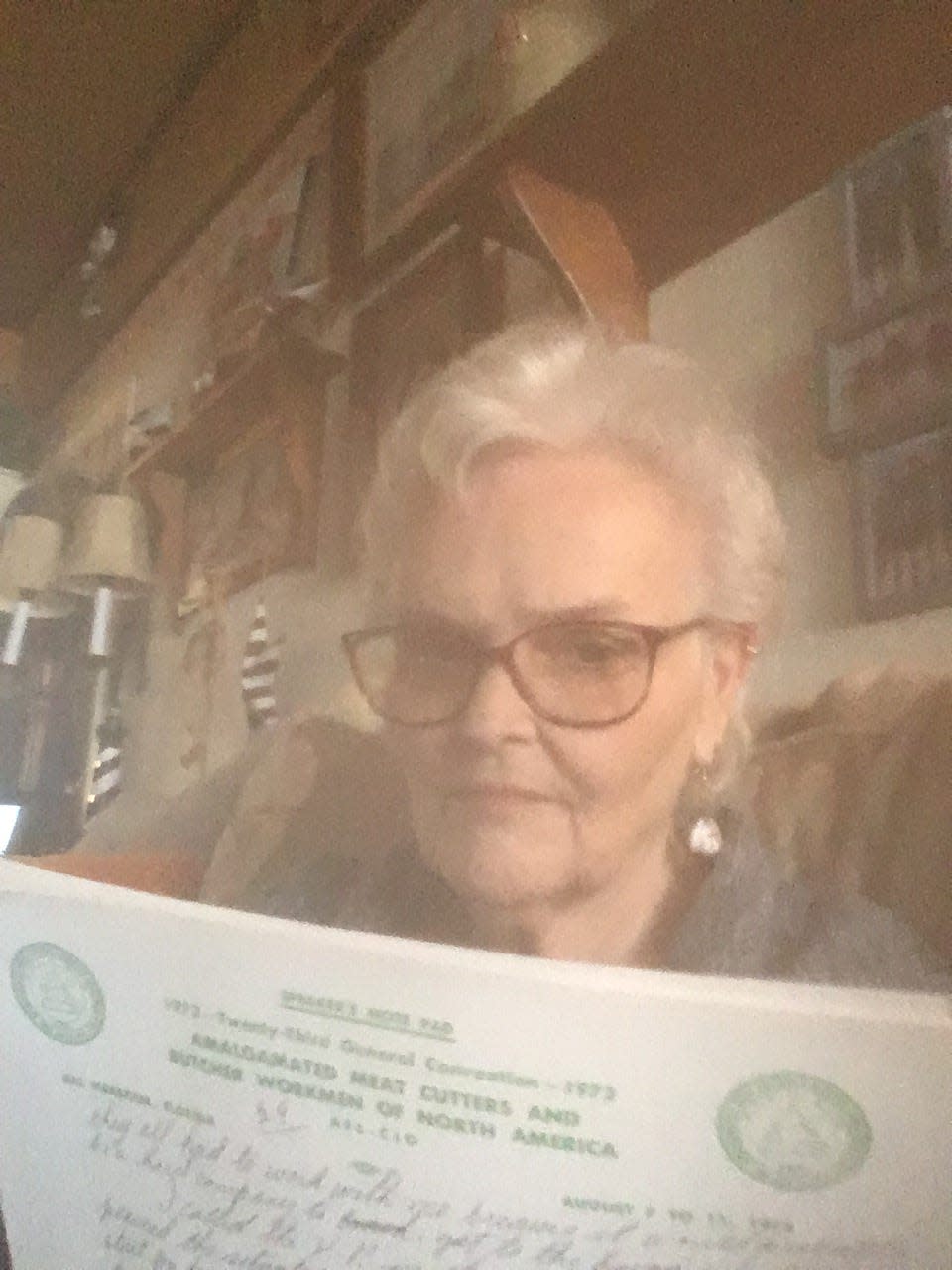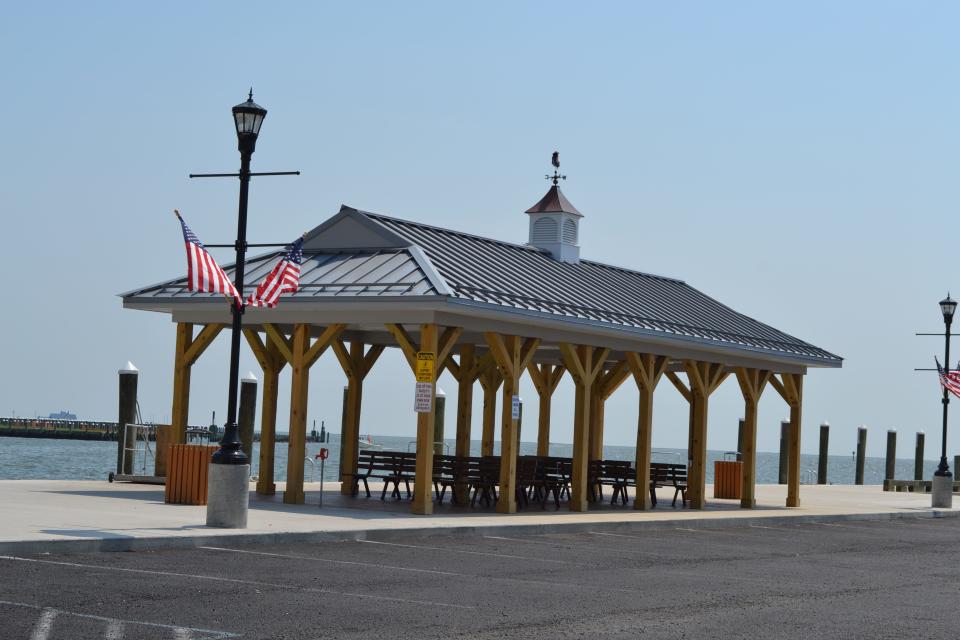Historic Crisfield crab pickers strike of 1938 is focus of seafood union leader's memoir
Last year, Linda Warfield saw a post on Facebook about the efforts of the Rev. Emanuel Johnson of Shiloh UMC and the Holy Pickers Union Center to commemorate Crisfield’s 1938 crab pickers strike with a Maryland historic road marker.
In a comment below the post, Warfield, who was born and attended high school in Crisfield, reported that her father, Melvin Tyler, was one of the leaders of Seafood Workers Local 453 in Crisfield in the 1940s. Her mother, Idella Tawes Tyler, worked as a bookkeeper for the local union.
Len Shindel, a Garrett County retired steelworker who was working on the crab pickers strike road marker project, contacted Warfield, interested in learning more about her father. After a brief discussion, Warfield told him her father had written a memoir about his time in the local union and as an international staffer of the Amalgamated Meatcutters.
Warfield sent Shindel a copy of the memoir. She also referred him to a book, "Mean Things Happening in this Land," that included information about her father risking arrest and violence, organizing menhaden fishermen in Mississippi in 1964.

“I’m very interested in history,” said Warfield, who plans to offer her father’s memoir to the J. Millard Tawes Historical Museum in Crisfield and the Enoch Pratt Free Library in Baltimore.
“I was blown away reading the memoir,” said Shindel. “During the 1938 Crab pickers strike, the workers, predominantly Black women, were threatened with mob violence and the car of their white union organizer was burned. Only five years later, Melvin Tyler, a white Crisfield resident and Elbert Bell, a Black Crisfield resident, worked together to form Local 453 of the Seafood Workers. And Elbert Bell became the first Black president of an effective, racially united Seafood Worker local.”
Crab pickers struck again in 1948 for more pay. The Seafood Workers led to the United Food and Commercial Workers, which represented workers in Crisfield, Cambridge and Salisbury at work sites, including Mrs. Paul’s Seafood, later Campbell’s.
Memories of growing up with unions in Crisfield
Linda Warfield said her father, born in 1905 in the “Down Neck” section of Crisfield, only completed eighth grade, but he was a lifelong reader. His memoir is handwritten. The first several pages were typed by Azenith Williams, Elbert Bell’s daughter, who had worked with the Reginald Lewis Museum in Baltimore to document the history of Black seafood workers. Williams died in 2011.
Warfield, who lived in Harford County for many years before moving back to Crisfield, recalls visiting the seafood workers’ first union hall across from Crisfield’s post office and the second hall in the location now occupied by Laird and Associates Realty.
WINTER LIFELINE: New ice breaker for Smith Island ready as winter lifeline and tribute to longtime captain
“I remember workers singing hymns at union meetings and I remember Mr. Bell wearing a black apron, running the mimeograph machine,” she said.
“My father worked with his dad from a young age, harvesting oystering and carrying them to Crisfield in wheelbarrows. He organized Crisfield oystermen in 1941 and was blacklisted by packers, forcing him to sell his oysters elsewhere. I think he just wanted to see people be paid a fair wage.”
Anger about treatment of Black workers in seafood industry

Warfield, who worked for a summer at Mrs. Paul’s Seafood, where workers were represented by Local 453, also said her father was angered when Black workers were mistreated because of their race.
“A lot of Blacks lived in houses owned by rich white people who wouldn’t fix them up. I think that stuck with my mom and dad,” said Warfield, who remembers segregated bathrooms at the local pharmacy and attending an all-white high school save for a very few Black students.
“I remember Freedom Riders coming into town and Mr. Bell coming by our house to borrow a pair of black shoes from my dad to attend a Civil Rights march," she said.
In 1949, Melvin Tyler went to Annapolis to fight for unemployment insurance for seasonal workers. In the 1950s, he organized both crab pickers and watermen on Hooper’s Island. The watermen, many of them husbands of crab pickers, refused to work until their wives were properly compensated.
SEAFOOD INDUSTRY: Maryland shrimp? Warming waters could bring seafood bonanza to Eastern Shore
Linda Warfield’s recently recorded recollections of her father’s work are now an introduction to his memoir. Warfield is also attaching photos and newspaper articles that reference her father.
“Linda sheds important light on the economic struggle of seafood workers on the shore, including crab pickers and workers on the water harvesting oysters, crabs and menhaden fish,” said Craig Simpson, author of a blog post on the 1938 Crisfield crab pickers strike.
Simpson is the former executive director of United Food and Commercial Workers Local 400 that continues to represent menhaden fishing workers in Reedville, Va.
“It’s critically important for young folks today to know the sacrifices that were made by our predecessors,” said Simpson. "Every struggle by working people is built on the shoulders of those who came before.”
Linda Warfield encourages other Eastern Shore residents to visit the Tawes Museum, review her father’s memoir, and bring forward more memorabilia and remembrances of the seafood industry and its workers.
“These were proud, hard-working, hard-praying people,” she said. “We can learn from their courage.”
This article originally appeared on Salisbury Daily Times: Crisfield crab pickers strike focus of seafood union leader's memoir

